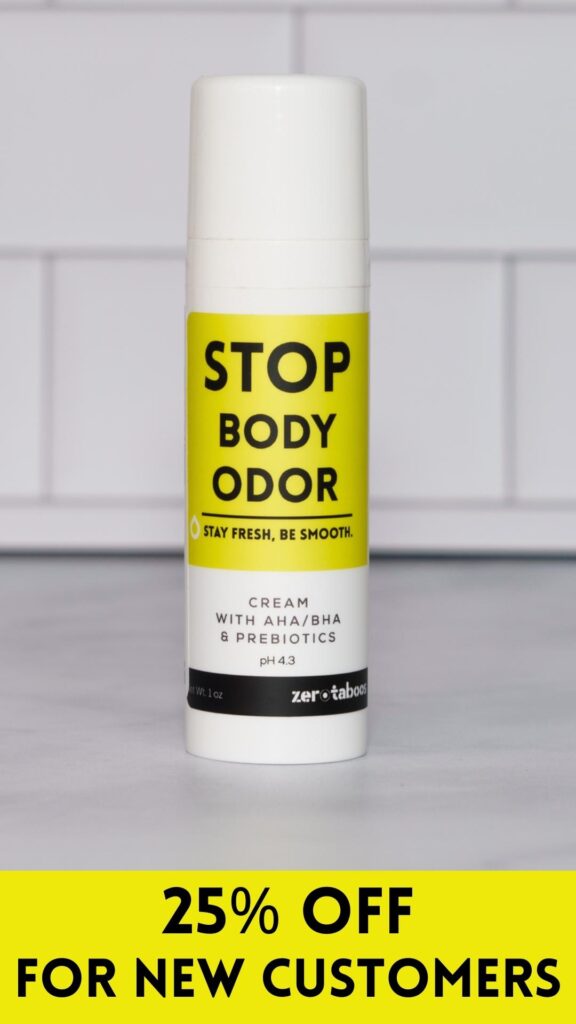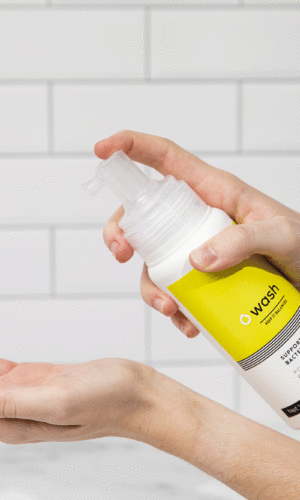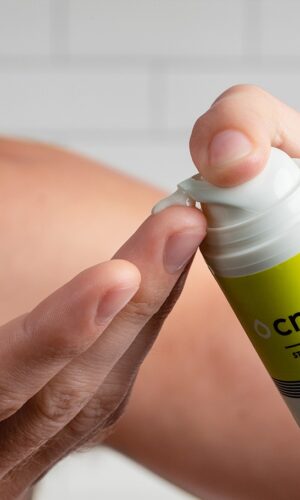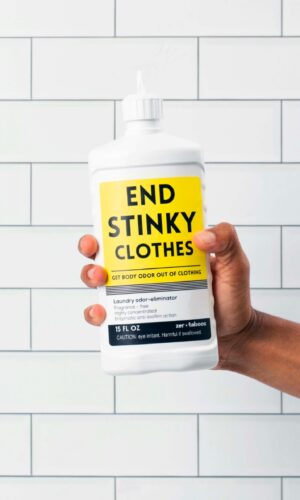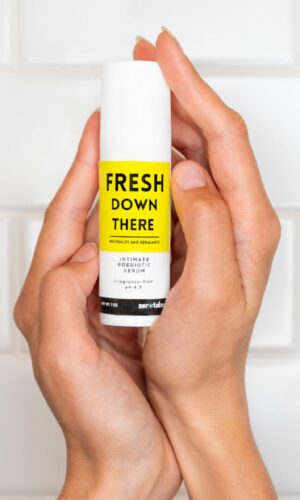
Date
- 30.07.22
We say that deodorant “works” when it helps us to sweat less and smell less; in other words, it reduces body odor and cuts down hidrosis in armpits, groin, feet, chest, or anywhere else we apply deodorants.
But how do deodorants work? How exactly is your body odor removed?
To answer this question, we must figure out what body odor is. This specific smell is nothing but the metabolic byproduct of bacteria on our skin. Our apocrine sweat glands located in the most “sweaty” areas release sweat which is filled with lipids and sugars, which bacteria on our skin love to eat. After finishing their “meal, ” some bacteria release volatile organic compounds that you can recognize as body odor. There are many types of bacteria on the skin; some produce B.O., and some don’t cause any smell.
Read more about the sources B.O. and how to prevent in 7 facts about stubborn body odor, even after a shower.
Deodorants and antiperspirants – what’s the difference?
So let’s get back to deodorants. You probably know that there are deodorants and there are antiperspirants. What is the difference? It is pretty simple.
Deodorants reduce body odor, and antiperspirants reduce the odor and the amount of sweat.
Deodorants are cosmetic products, and antiperspirants are medical products.
Deodorants work as antimicrobials by reducing the number of bacteria, and most of them include perfumes to mask B.O.
Antiperspirants work with the help of their most “active” ingredient – aluminum (aluminum salts).
Aluminum salts, such as aluminum chlorohydrate and aluminum zirconium, prevent perspiration by blocking the sweat glands. These chemicals mix with sweat, creating a gel layer covering the sweat glands. Thus, the amount of sweat released on the surface of the skin is reduced for the next several hours after an antiperspirant is applied.
There are many rumors about aluminum-based deodorants and how they cause breast cancer. The research on this topic is ambiguous. Many scientists say that aluminum in deodorants blocks pores above apocrine sweat glands, which are located right next to breasts. These clogged pores and glands can result in breast cysts, which are actually benign. But why risk it, right? Especially when there is such a “great” alternative as natural deodorants. But more on that later.
Here is another supposed link between deodorant use and breast cancer – Parabens. They are a very common ingredient in cosmetic and body care products – 75-90% of them include parabens. Parabens aim to invade the skin and act similar to estrogen. The level of estrogen in the female body changes during each monthly menstrual cycle, pregnancy, and other natural hormonal changes. Source Estrogen causes breast cell growth (both normal and cancerous). Thus, some scientists link antiperspirants’ use to develop breast cancer.
Experts are still looking into this, but who wants to jeopardize their health?
There are many other chemicals in deodorants (Cyclomethicone, triclosan, zinc ricinoleate, zinc oxide, etc.), so, clearly, many people try to switch to something more natural.
Natural deodorants – what’s wrong with them?
Most aluminum-free natural deodorants work by changing the pH of our underarm skin to a state where bacteria can’t survive. The main ingredient here is baking soda. Indeed, it is a much safer alternative to aluminum-based deodorants, but baking soda (just like many other ingredients in natural deodorants, e.g., fruit extracts) makes skin highly alkaline (basic), which means it can lead to irritation, discoloration, rash. And our skin, on the contrary, likes to be acidic.
Let’s look at what else natural deodorants manufacturers include in their products.
Essential oils. Some, like tea tree oils, work as antibacterials and fight B.O. Others may be added to deodorants instead of fragrance, just to create a nice scent.
Hops are aimed at decreasing the growth of bacteria.
Mineral salts, similarly to aluminum salts in antiperspirants, create a temporary layer on the skin to prevent bacterial growth and, as a result, body odor.
Witch hazel is a natural astringent and an anti-inflammatory, so it absorbs oils, narrows pores in the armpits, and reduces B.O.
Aloe Vera can be added to soothe skin, plus it has antibacterial, antimicrobial, and antiseptic properties.
Coconut oil is sometimes used as a skin moisturizer in natural deodorants.
So here is the list. Plus, there are ingredients to emulsify and stabilize the product.
And still, many customers complain that natural deodorants don’t work.
Why don’t natural deodorants work?
Most of the time, it happens when we are trying to switch from aluminum-based to natural deodorants. After long years of using antiperspirants, our skin microbiome is not the same. It is imbalanced, and as soon as you stop using your usual products, bacteria, which were suppressed all this time, start to regrow. “Stinky” bacteria grow faster and in bigger amounts, so the transition to aluminum-free deodorant may take some time. The bacteria will restore their natural balance within a week or two, and your natural deodorants will start working.
But if so, if bacteria restore their balance on their own and do not produce strong B.O., why use them at all?
If you decide to stop using aluminum-based deodorants if your natural deodorant causes irritation, or you simply want to cut down on all kinds of unnecessary hygiene products, here is the sign you’ve been waiting for – stop using everything at once.
You will have a tough time at first, but as soon as your bacterial balance is restored, you will only need to support your healthy microbiome to stay confident and fresh.
To deal with this transition in a less smelly way, try our products to support your skin microbiome. Use WASH, which naturally suppresses organisms responsible for B.O., instead of your shower gel or soap. And CREAM will make your sweat odorless. Anti-odorant CREAM has AHA and BHA among the ingredients. These are types of acids aimed to acidify the skin and exfoliate its top layer. Besides, AHA/BHA antiodorant effectively reduces the pH of the skin on underarms, promoting beneficial bacteria and decreasing the amount of body odor-producing bacteria. You will notice less body odor in 10-12 days.
Has your favorite deodorant stopped working?
What if you changed nothing in your daily hygiene routine, but your favorite deodorant stopped working?
Don’t rush to blame your deodorant if the following applies to you:
1. The amount of sweat your body produces and the way it smells can be influenced by pregnancy, breastfeeding, the menstrual cycle, menopause, or other hormonal changes. Read more about body odor during menopause here.
2. You may smell B.O. from your clothes, as bacteria tend to stay in the fibers. As soon as bacteria are heated by the warmth of your body, they get activated again. Read about how to get the stink out of your clothes.
3. You may think about what you are doing wrong in terms of hygiene. Try shaving your armpits, as hair in this area can block deodorant from working; it keeps moisture, plus works as a diffuser for body odor.
However, be careful applying deodorants right after shaving, it can cause irritation.
4. Are you stressed lately? Stress and anxiety cause more active sweating.
It’s known for a fact that “stress sweats” are more stinky. Think about any new stress sources and try to eliminate them in your life.
Fixing it is free and overall useful. Try meditating, listening to calming music, focus on your mental and emotional well-being to release stress.
5. Do you keep a diet?
Consumption of sugar, fats, red meat, and highly processed foods can change B.O. Consumed proteins and fats are also transferred to apocrine glands’ sweat, and bacteria love them. As a result, they produce stronger body odor. Coffee consumption increases sweating too.
Try to include more fruits, vegetables, and greens in your diet instead.
6. It’s about the fabric of your clothes.
Nylon, polyester, acrylic, and other synthetic fabrics trap sweat with bacteria which produce B.O. They don’t have the breathability of natural fabrics.
Natural fabrics (cotton, wool, bamboo, silks) let your body “breathe”, which is especially important if you experience extra sweating.
Try also avoiding tight-fitting clothes, it only traps more stinky bacteria.
Summary:
- Antiperspirants can easily destroy your healthy microbiome with continuous use. And getting rid of this “addiction” isn’t always easy.
- Natural deodorants harm the skin microbiome but in a different way. They change the pH of your skin significantly. They can cause irritation, rash, and discoloration and aren’t suitable for sensitive skin.
- If you are switching from antiperspirant to natural deodorant, you will most definitely stink for a couple of weeks.
- As soon as your skin bacteria rebalances after the use of aluminum-based deodorants, you will have less body odor. With or without natural deodorant.
- Stronger body odor can also be caused by hormonal changes, poor diet, stress, quality of your clothes, and not shaving.
-
WASH: Support Healthy Flora
$19.00 — or$19.00Original price was: $19.00.$15.20Current price is: $15.20. every 3 months Add to cartWASH: Purely designed to defend the body’s natural defenses.
-
CREAM: Stop Body Odor
$11.00 — or$11.00Original price was: $11.00.$8.80Current price is: $8.80. every 3 months Add to cartAcidify your way to smooth and odorless armpits and groin.
-
Laundry Enzymes: End Stinky Clothes
$23.00 — or$23.00Original price was: $23.00.$18.40Current price is: $18.40. every 3 months Add to cartLaundry Enzymes: Get BO out of your clothing with one wash.

